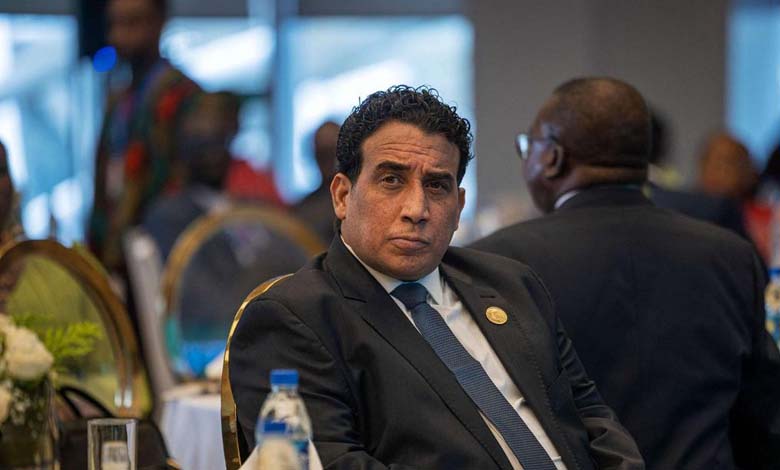Mohammed el-Menfi intensifies pressure on Dbeibah by criticizing spending file
The President of the Presidential Council seeks to form technical sub-committees to investigate the reasons for the inflation of spending amid escalating internal and external pressures to end the Dbeibah government

Internal and external pressures on the Prime Minister of the National Unity Government, Abdelhamid Dbeibah, are increasing for him to relinquish power and yield to the convergence between the East and the West to form a new national unity government, as well as to work on adhering to the outcomes of the Tunis meeting between the Parliament and the Council of State to move towards elections.
The Libyan Presidential Council President, Mohamed al-Menfi, has directed clear criticisms at the Dbeibah government regarding spending, indicating a waste of public funds and calling for an investigation into its circumstances.
In a series of tweets on the “X” Twitter platform previously, he emphasized that “the continuous increase in public spending, especially the dangerous inflation in the fuel support item for the year 2023, requires urgent and decisive measures for the policies of public institutions, and not to impose its consequences on citizens”.
He also stressed “the Council’s determination to form technical sub-committees to investigate the reasons for the inflation of spending related to salaries and fuel support, as well as to explore ways to save the Libyan economy”, clarifying that the Council will adhere to the committee’s recommendations.
He requested all Libyan institutions concerned with public spending to notify their representatives to participate in the first meeting of the Supreme Financial Committee for the year 2024, which will be held next week.
These criticisms are not the only ones facing the Dbeibah government regarding spending and suspicions of wasting public funds, as the Governor of the Central Bank, Saddek Elkaber, requested last week in a striking position from the President of the House of Representatives, Aguila Saleh, to form a new government, and proposed on February 27th to modify the exchange rate of the Libyan dinar against foreign currencies and impose a 27% tax on foreign currency.
This position, in a context of changing political alliances, prompted the designated Libyan Parliamentary Prime Minister, Osama Hamad, to address a letter to the bank governor and his deputy, Mouri Al-Baraasi, inviting them to implement the order of the Ajdabiya Court of Appeal. and to appoint them as judicial guardians of Libyan oil funds and revenues.
Hamad requested in his letter to Elkaber and Al-Baraasi to expedite the implementation of the order and to immediately start their work as a judicial oversight committee for the funds of the Libyan people, and to take urgent measures to protect them from financial and administrative waste and corruption.
The President of the Parliament and the Governor of the Central Bank confirm that the crisis of the devaluation of the Libyan dinar on the parallel market to about 7.25 against the US dollar and the increase in commodity prices due to the shortage of cash liquidity in commercial banks are due to the increase in public spending by the Tripoli government.
Pressure on Dbeibah is increasing after Libyan parties gathered in Cairo agreed on the need to form a unified government tasked with overseeing the electoral process, providing essential services to citizens, as well as agreeing on the sovereignty of Libya and the unity of its territory, and rejecting any foreign interventions in the political process in support of the Tunis outcomes that go in the same direction, thus accelerating the departure of the interim government.
Last week, the work of the dialogue session between el-Menfi, Aguila Saleh, and the President of the State Council, Mohamed Tekala, began in Cairo, at the invitation of the Secretary-General of the League of Arab States, Ahmed Aboul Gheit, with the aim of facilitating Libyan-Libyan dialogue and bringing the views of Libyan parties closer.
In a sign of the extent of internal divisions in Libya, protesters stormed the headquarters of the Presidential Council in Tripoli to protest against the decision to include martyrs and wounded of the armed forces in the eastern and southern regions in the General Administration for the Care of the Families of Martyrs and the Missing.
The Presidential Council urged the head of the administration to take into account the wounded and martyrs of the Libyan Arab Armed Forces in the eastern and southern regions and to disburse the material and moral allowances due to them in accordance with the laws in force in the administration, while the protesters considered this contrary to the results of the Political Dialogue Forum.
The protesters chanted slogans demanding the downfall of the Dbeibah government and the Presidential Council.












